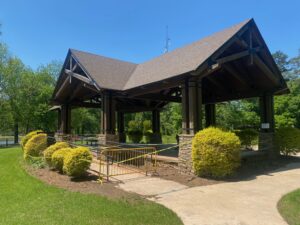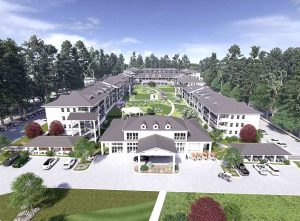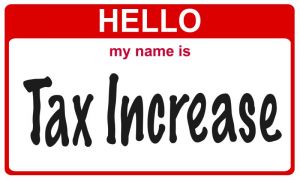Read their fingertips … More than two-thirds of Peachtree City residents who took the online survey this year agreed that city taxes and service levels “should remain the same.”
To be exact, 71.5 percent of survey respondents agreed with that statement. Another 14.7 percent argued that taxes and services should be decreased, while 13.8 percent supported a tax and service increase.
That means an overwhelming 86.2 percent of residents responding to the survey don’t want to see a tax increase.
Well over 1,900 surveys were culled this year when the survey was available almost exclusively online only. Staff determined that 14 percent of all households in Peachtree City responded.
Notable was the fact that nearly two-thirds of those who bothered to take the survey were from households with no children present. The data show 62.8 percent of the survey-takers reported no children present in their households.
In addition, 27.2 percent of the respondents were age 65 or older, 54.2 percent were age 55 or older, and 80.2 percent were age 45 or older.
The survey is not like a Gallup or similar scientifically based survey, in which a truly random sample of persons of all ages is selected. The city survey is what is known as a non-probability sample, meaning that no one can guarantee with any statistical confidence that the results are representative of the larger population — in this case, the residents of Peachtree City — since those surveyed were self-selected and not randomly selected.
But while this is not a scientific survey, it does provide useful information for key decision makers, officials said.
The survey showed a lack of support among those responding for expanding the city’s Gathering Place senior citizen’s center. Some 55 percent of respondents opposed the expansion.
When the data was broken down, respondents who were “head of household” and older than 55, there was a marginal 52 percent in favor of the expansion, while the other category of “families with children” weighed heavily against the expansion with 62.9 percent against it.
The city’s most recent proposal to expand the Gathering Place would require an expenditure of about $850,000.
Survey data also revealed instances where clearing up misinformation can help the city, specifically when it comes to improving the use of curbside recycling.
Although each resident pays for curbside recycling as part of the garbage collection fees to their company of choice, only 62 percent of survey-takers actually use the service.
Of the remaining 38 percent, some 22 percent recycle elsewhere, but 18 percent believe it costs extra, which is not the case at all, city officials said.
Moreover, some 15 percent didn’t even know of the program, and 5 percent didn’t participate because they thought they had to sort out each recyclable item.
Each trash hauling company in Peachtree City has to offer single-stream recycling, which means there is no need for sorting the recyclable materials, said city spokesperson Betsy Tyler.
Feedback on the citizen survey also helped the city calculate some crucial data when it comes to usage of the city’s cart path system, officials said.
The path system removes more than 450,000 car trips from the road each year just for the 1,936 people that responded to the survey. If those figures can be extrapolated to the rest of the population, that means the path system is a major player in keeping cars off the road, city officials said.
Councilman Doug Sturbaum said that data is good information to support the city’s wishes for cart paths to be included in regional transportation funding through the proposed regional transportation sales tax that voters will consider next year.
The survey also gave some guidance on the future of the city’s winter pools at the Kedron Aquatic Center. Some 65 percent of survey-takers agreed having the pools open in the winter was either “very important” or “somewhat” important.
That was another question that skewed a bit based on demographics. Some 59.4 percent of those who were head of household 55 and over considered it very or somewhat important, but the number jumped to 75.7 percent for families with children, officials said.
The survey also asked respondents where they got the majority of their news about Peachtree City. Again this year, The Citizen print edition came in at number one with 63 percent saying they frequently read The Citizen and another 27 percent saying they sometimes read it. In second place at 59 percent (“frequently”) and 22 percent (“sometimes”) was the city’s own email Updates.










Leave a Comment
You must be logged in to post a comment.